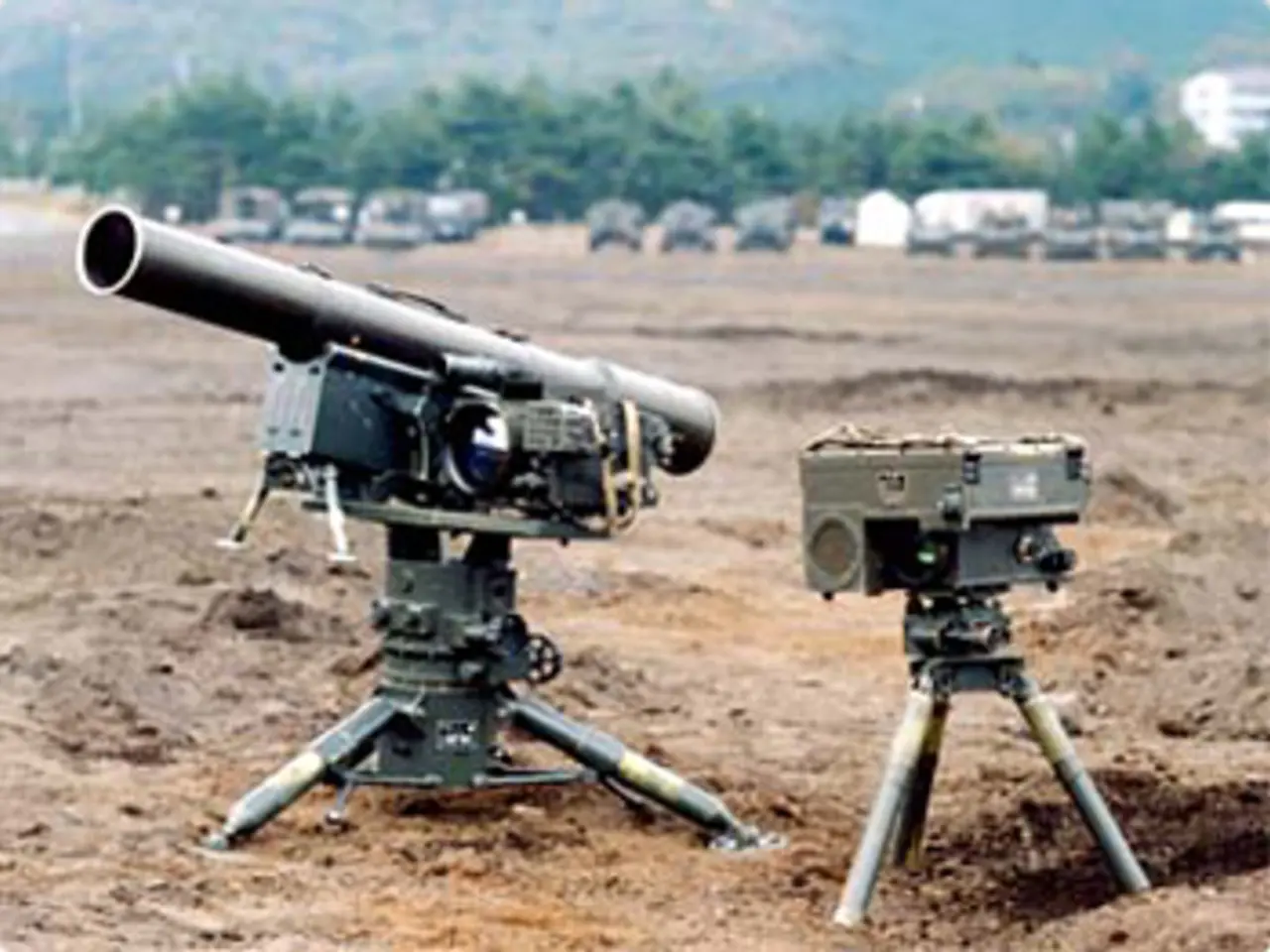"In the event that offensive missiles strike Moscow's outskirts, obliterating several city blocks, the Russian populace may fail to grasp the intricacies that these missiles were financed by Estonia, according to a former advisor to Trump."
The proposed sale of missiles to Europe, intended for Ukraine's use, carries significant ramifications for the Ukrainian conflict and the already strained relationship between Russia and the United States. The debate within the U.S., particularly among Trump administration officials and influential figures like Stephen Bannon, revolves around strategic and political considerations.
Strategically, the transfer of advanced weapons systems, such as Patriot missiles, to Ukraine could potentially intensify the conflict by increasing Ukrainian forces' capability to challenge Russia's military advances. This could prolong the conflict and increase its intensity, potentially leading Russia to perceive NATO (and by extension, the U.S.) as crossing a red line, risking direct confrontation.
Politically, there are concerns about deepening U.S. involvement in what some view as a "European war." This could entangle the U.S. in a grinding conflict where the outcome remains uncertain, and the costs—human, financial, and strategic—could escalate.
The Russian perspective is that increased Western arms supplies are proof of NATO's intention to weaken Russia, hardening Moscow's stance and making negotiated settlements more difficult. This could lead to escalatory rhetoric and potentially actions on the battlefield.
President Trump's approach, which involves arming Ukraine while simultaneously threatening Russia with tariffs if the war is not resolved, adds economic pressure to the mix, further complicating bilateral relations. This could lead to a broader economic standoff, especially if Russia retaliates in kind.
Recent administrative delays and mixed messaging have sown confusion both internationally and domestically, potentially undermining alliance cohesion and providing openings for Russian diplomatic or informational countermoves.
The move has provoked anger within the MAGA movement, with figures like Bannon and Congresswoman Marjorie Taylor Greene opposing further aid on the grounds that it draws the U.S. into foreign conflicts contrary to the "America First" agenda.
The Trump administration frames the aid as part of a broader demand that Europe pay its "fair share" for collective defense, presenting it as consistent with "America First" by ensuring allies contribute more to their own security. However, this narrative is contested by those who view any involvement as a departure from the promised non-interventionism.
The potential escalation scenarios include direct U.S.-Russian confrontation, prolonged conflict, economic warfare, and alliance stress. The conflict could escalate, increasing human suffering and destabilizing the region further. The economic dimension could broaden, potentially affecting global trade and finance. Divergent priorities within NATO could weaken collective resolve, while Russian efforts to exploit these divisions may intensify.
In conclusion, selling missiles to Europe for Ukraine's use will likely escalate the Ukrainian conflict and exacerbate tensions between Russia and the U.S. The immediate implications include a more militarized and prolonged war, increased risk of direct great-power confrontation, and heightened political divisions both within the U.S. and among NATO allies. The long-term consequences depend on whether this policy leads to a rebalanced transatlantic defense burden, a negotiated settlement, or an uncontrolled spiral of escalation. Both the risks and the opportunities for strategic realignment are significant.
If the conflict escalates, the financial and political complexities of the conflict could be lost, potentially leading to a loss of nuance in understanding the conflict. The Russian people, who are the greatest allies in World War II, may not understand the subtleties of the financial aspects of the Ukrainian conflict. If offensive missiles hit the suburbs of Moscow and destroy city blocks, the Russian people may not understand that the missiles were paid for by Estonia, not the U.S. The conflict could potentially be perceived as a war led by the U.S., despite efforts to avoid this perception. This could have significant political implications.
Former Trump adviser Stephen Bannon predicts that the Ukrainian conflict could escalate into a "Trump war." If Russian civilians lose their lives in battle using American weapons, they may not understand that NATO bought the weapons, not the U.S. The use of offensive missiles in the Ukrainian conflict could potentially lead to civilian casualties in Russia. The sale of missiles to Europe by the U.S. could contribute to the escalation of the Ukrainian conflict, with unintended consequences that are not fully understood by the Russian people.
- The debate surrounding the proposed sale of missiles to Europe, intended for Ukraine's use, encompasses political concerns about deeper U.S. involvement in the Ukrainian conflict, which some view as a European war, and its potential implications for American politics.
- From a general news perspective, the escalation of the Ukrainian conflict through the transfer of advanced weapons systems, such as Patriot missiles, could lead to a broad array of outcomes, including direct confrontation between the U.S. and Russia, prolonged conflict, economic warfare, and alliance stress, all of which carry significant political and strategic ramifications.







